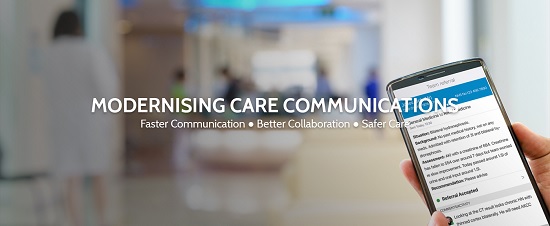Innovation
Modernising Care Communications: Real time connectivity making a real difference to your healthcare organisation and your patients.
https://www.careflowconnect.com
enquire@systemc.com
+44 (0)3330 772 599
Case study
File size ( 2.59 MB)
File size ( 2.59 MB)



